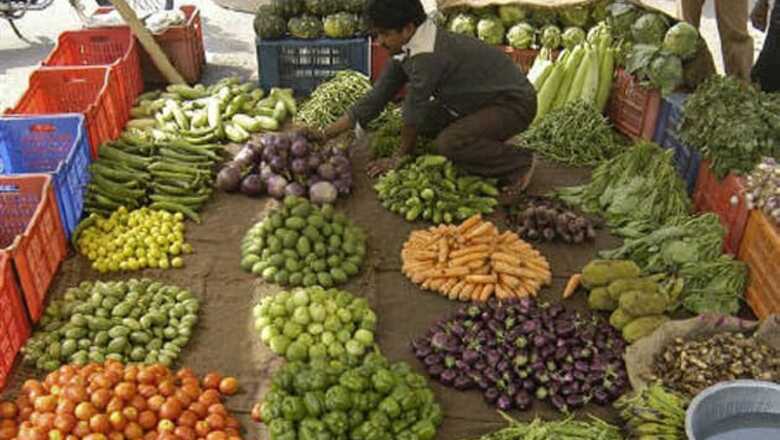
views
New Delhi: Food inflation slid to 12.85 per cent for the week ended October 23, falling for the third straight week, as vegetable prices softened on improved supplies, justifying RBI's optimism that it may not have to up rates further.
Annual food inflation dropped down by 0.9 percentage points from 13.75 per cent in the previous week as vegetable prices eased by near 3 per cent week-on-week.
However, protein based items like meat, egg and fish rose by 28.85 per cent year-on-year. Pulses, another protein-based food, turned expensive by just 0.67 per cent.
At its monetary review, RBI pointed towards protein based items getting costlier, because change in consumption pattern in favour of them.
"As income goes up people tend to have a more protein rich diet which is pushing up their prices. It is unlikely that their prices would come down in near future," Crisil Chief Economist DK Joshi said.
Experts said food inflation would soften further by November end when kharif crops come to the market. Food inflation have remained high in August and September as heavy monsoon caused a supply glut.
"The rate of rise in food prices would ease more in November as kharif harvest hits the market. Around December we expect food inflation to be in single digit," Joshi said.
On annual basis, potato prices were sharply down by 51.22 per cent and vegetables became cheaper by 4.20 per cent. Also onion prices eased by 0.13 per cent.
However, other essential items like cereals, milk and fruits continued to remain costly.
On annual basis, cereals prices rose by 4.07 per cent. While pulses became costlier by 0.67 per cent on a yearly basis, wheat and rice prices increased by 4.36 per cent and 3.17 per cent, respectively.
Experts said the softening in food inflation would help bring down overall inflation numbers for October. High food prices pushed headline inflation to 8.62 per cent in September from 8.5 per cent a month ago.
To tame inflation and curb consumer spending RBI hiked its lending and borrowing (repo and reverse repo) rates for the sixth time this year on Tuesday by 25 basis points each.
"Based purely on current growth and inflation trends, the Reserve Bank believes that the likelihood of further rate actions in the immediate future is relatively low," RBI had said in its second quarter monetary policy review.
Though prices of some perishable food items are easing, demand supply mismatch persist in many essential commodities.
Among other food items, milk prices soared by 21.72 per cent during the week on yearly basis, while fruit rates rose by 16.03 per cent.



















Comments
0 comment